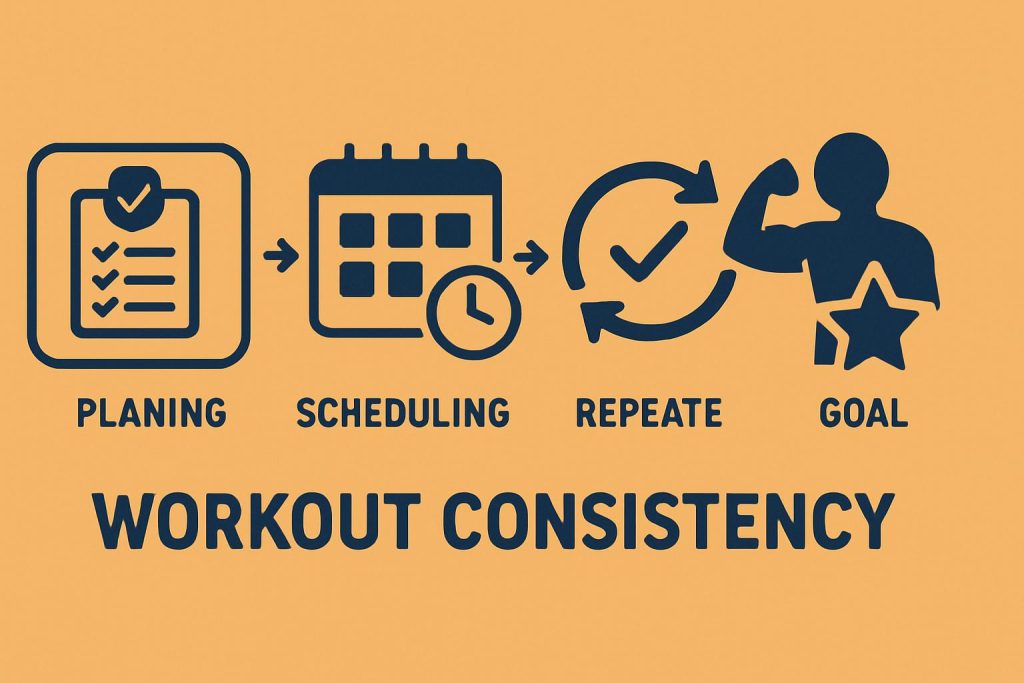Physical exertion is only one part of the fitness equation; the mind is an equally powerful, if not more critical, component for achieving and sustaining long-term success. As highlighted in the ultimate guide to starting your fitness journey, your mindset dictates your motivation, resilience, and ability to navigate the inevitable challenges that arise. Mastering your mental game is paramount. This article delves into the key psychological principles and actionable strategies to cultivate a robust fitness mindset that will carry you through plateaus, setbacks, and ultimately to your goals.
The power of your internal dialogue: self-talk
What you say to yourself matters immensely. Negative self-talk (“I can’t do this,” “I’m too tired,” “I’ll never reach my goal”) erodes confidence and sabotages effort. Conversely, positive, constructive self-talk can be a powerful motivator.
- Awareness: Start by noticing your internal dialogue. When do negative thoughts arise? What triggers them?
- Challenge & Reframe: When a negative thought appears, challenge its validity. Is it truly accurate, or is it an exaggeration or assumption? Reframe it into something more positive or neutral. Instead of “This is too hard,” try “This is challenging, but I can take it one step at a time.” Instead of “I skipped a workout, I’m a failure,” try “I missed one workout, but I’ll get back on track with the next one.”
- Affirmations: Use positive statements about yourself and your capabilities. Regularly repeating affirmations like “I am strong and capable,” or “I am committed to my health” can gradually shift your default thought patterns.
Cultivating a growth mindset
Popularized by psychologist Carol Dweck, a growth mindset is the belief that abilities and intelligence can be developed through dedication and hard work. A fixed mindset, conversely, believes these traits are static. In fitness, a growth mindset is crucial.
- Embrace Challenges: View difficult workouts or new exercises not as threats, but as opportunities to learn and grow stronger.
- Learn from Setbacks: Instead of seeing a missed goal or a plateau as a failure, view it as a learning opportunity. What can you adjust? What can you do differently?
- Focus on Effort & Process: Praise your effort and consistency rather than just the outcome. The journey and the habits you build are as important as the end goal.
- Seek Feedback & Learn: Be open to advice, learn new techniques, and understand that there’s always room for improvement.
Intrinsic vs. extrinsic motivation
Motivation can come from external sources (extrinsic), like wanting to look good for an event or win a competition, or internal sources (intrinsic), like enjoying the feeling of being strong, the stress relief exercise provides, or the personal satisfaction of achieving a goal.
- Extrinsic Motivation: Can be a good initial spark, but it often wanes. Relying solely on external validation can make your commitment fragile.
- Intrinsic Motivation: Is more sustainable. Focus on finding activities you genuinely enjoy or on the internal benefits you experience (more energy, better mood, sense of accomplishment). This internal drive is more resilient to external pressures. If you need help finding that spark, perhaps find motivation with the gravitus fitness community app to connect with like-minded individuals.
Visualization: seeing success
Many athletes use visualization techniques to enhance performance, and it can be equally effective for everyday fitness.
- Visualize the Process: Mentally rehearse your workout. Imagine yourself successfully completing each exercise, feeling strong and energized.
- Visualize the Outcome: Imagine yourself achieving your fitness goals. How does it feel? What does it look like? This can strengthen your resolve and make the goal feel more attainable.
Building resilience: bouncing back from adversity
Your fitness journey will not always be smooth. You’ll face days with low energy, unexpected schedule changes, or periods where progress seems to stall. Resilience is the ability to bounce back from these challenges.
- Expect Setbacks: Understand that they are a normal part of the process, not a sign of failure.
- Be Flexible: If your planned workout isn’t possible, what can you do instead? A shorter workout? A different activity? Some movement is better than none.
- Focus on What You Can Control: You can’t control the weather or unexpected work demands, but you can control your reaction and your commitment to finding alternatives.
- Practice Self-Compassion: Don’t beat yourself up over a missed workout or a perceived failure. Treat yourself with the same kindness and understanding you would offer a friend. You can also boost focus with the betterme mental wellness features to help manage stress and maintain a positive outlook.
Setting effective goals (revisited from a mindset perspective)
While goal setting was covered in the ultimate guide to starting your fitness journey and is key to building a consistent workout routine you can stick to, the mindset with which you approach them is crucial.
- Focus on Mastery, Not Just Performance: Aim to improve your skills and understanding, rather than solely focusing on hitting specific numbers. This fosters intrinsic motivation.
- Break Down Large Goals: A big goal can feel overwhelming. Break it into smaller, more manageable steps. Each small win builds confidence and momentum.
- Celebrate Milestones: Acknowledge and celebrate your progress along the way, not just the final achievement. This reinforces positive behavior.
Mastering your fitness mindset is an ongoing process, not a one-time fix. It requires consistent effort in managing your self-talk, cultivating a growth mindset, finding intrinsic motivation, visualizing success, and building resilience. By prioritizing your mental game as much as your physical training, you create an unstoppable combination for achieving long-term fitness success and enjoying the journey along the way.



